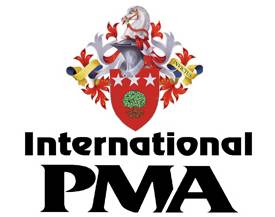Financial Planning and Reporting
Participants will understand how to:
- Analyse and evaluate the organisation and its role in economy and society critically
- Apply necessary tools and techniques to measure and control the organisation on the strategic level
- Develop policies and practices to maintain effective use and deployment of scarce organisational resources
- Reorganise and deploy resources towards the more critical parts of the organisation
- Generate new ideas and practices to ensure that resources are effectively deployed
Programme Outline
- The role and scope of the strategic manager
- Key skills for effective management, leadership and administration
- Setting objectives and targets for effective strategic measurement and control
- Behavioural modification and team motivation
- Team commitment
- Quality management techniques and measurement
- Introduction to strategic research
- Integration of IT into work processes
Corporate Financial Management
Participants will understand how to:
- The financial function of the organisation
- Analyse the financial performance of the organisation
- Apply different techniques in the evaluation of capital projects
- Finance projects
- Determine effective ways of financing capital projects
- Analyse and manage risks
- Develop working capital and cash budgets
- Consider capital structure and dividend policies
- Make decisions concerning investment policies, hedging policies and derivatives
Programme Outline
- The globalised financial world
- The investment decision
- Project Appraisal – Cash flow and applications
- Capital Rationing
- Risk Portfolio Theory
- Capital Asset Pricing Model
- The Stock markets and their financial products.
- Raising Equity Capital
- Long-term debts
- Value Based Management
- Managing Foreign Exchange Risks
Investments – Equities and Bonds
Participants will understand how to:
- Understand the workings of financial markets
- Understand the different types of equities and bonds
- Appreciate the changes and governance of financial markets
- Determine most effective ways of financing capital projects
- Understand risk and how risks are analysed and managed for both equity and bond markets
Programme Outline
- Types of Equity
- Modern Capital Markets
- Stock Exchange
- Equity Markets
- Primary Fundraising
- Emerging Markets
- Structure of investment banks
- Asset and Fund Management
- Bonds and Bonds issuance
- Investors in Bond markets
- Financial calculations
- Bond Strategies
- Risk Analysis
- Derivatives and Options
Introduction to Derivatives
Participants will understand how to:
- Apply their knowledge in financial markets and instruments,
- Undertake financial engineering
- Apply quantitative tools essential for understanding finance and research methods.
- Design and manage equity and bond portfolios
- Effect interest and currency risk management
Programme Outline
- Derivative Instruments and Markets
- Derivatives: Forward and futures Markets
- Non-linear Derivatives: Options
- Currency, Equity and Commodity Options
- Hedging and Trading Strategies Using Options
- Equity Derivative Strategies
- Credit Derivatives
- Equity Linked Structures
- FX -Linked Applications
- Capital Guaranteed or Capital Protected Products
- Interest rate - Linked Applications
- Commodity -Linked Applications
- Financial Risk Management Practices
- Portfolio Risk Management
- Measuring portfolio performance
- Financial Derivatives
- Risk Management of Hedge Funds
- Operational Risk Management
Credit Analysis and Capital Structure
Participants will understand how to:
- Understand financial information
- Undertake a structured approach to financial analysis
- Apply financial ratios
- Evaluate the cost of capital
- Undertake company valuation
Programme Outline
- Importance of financial information
- Importance of the auditor’s report
- Nature and significance of shareholders’ equity
- The nature of income and expenditure
- Cash flow
- Conducting an analysis of a company’s strengths, weaknesses, opportunities and threats
- Using ratios to judge financial performance
- Importance of the cost of capital
- Calculate Weighted Average Cost of Capital (WACC)
- Company Valuation
- Relative value multiples: Price to book values, price to earnings ratio, EBITDA multiples, cash flow multiples, sales multiples, asset multiples, enterprise value
- Use of Shareholder value analysis
International Payments and Financing Systems
Participants will understand how to:
- Advise the organisation on the most effective method of financing overseas and international projects
- Analyse foreign exchange movements and its impact
- Apply hedging and derivative instruments to handle financial risks in the international context
- Apply the most effective method for the transfer of funds in the international context
- Make the important decisions concerning foreign exchange payments
- Reduce exposure to foreign exchange risks
Programme Outline
- Concepts of international trade and finance
- Economics of financial transactions
- The International Monetary System
- International banking and Euro-currency markets
- Foreign exchange markets
- International risk assessment and management
- Currency options
- Hedging
- Futures and Commodities markets
- Raising Finance
- Banks and transfer of funds
- Methods of payments in international trade
Islamic Banking and Finance
Participants will understand how to:
- Develop, implement, manage, and administer Islamic Financial products
- Establish and successfully manage Islamic Financial Institutions
Programme Outline
- RIBA-free Financing
- Islamic Economical and Financial System
- Islamic Modes of Financing
- Islamic Commercial & Investment Banking
- Islamic Insurance System
- Advanced Areas in Islamic Finance
- Islamic Sources of Income Generation
- Islamic Laws of Contract
- Sharia Supervisory Committee


